#n3
Photo

low effort agent idol swap
#splatoon#splatoon 1#splatoon 2#splatoon 3#agents#splatoon agent#splatoon agents#splatoon agent 3#splatoon agent 4#splatoon agent 8#splatoon agent neo 3#splatoon agent n3#n3#agent 8#agent 4#agent 3#neo 3#neo 3 squid#neo 3 octo#octoling#inkling#au#splatoon au#small fry#small fry splatoon#splatoon small fry#small fry idol
888 notes
·
View notes
Text




The Beatles for The Beatles Monthly Book n°3, October/1963.
#john lennon#paul mccartney#george harrison#ringo starr#the beatles#60s#1963#beatles monthly book#n3#my:read
103 notes
·
View notes
Text
JLPT N3 文法・例文:~はずがない
意味:Definitely not 接続:普通形+はずがない
1.動詞の普通形+はずがない
2.ナ形容詞だ+な/であるはずがない
3.イ形容詞+はずがない
4.名詞+のはずがない
1.動詞の普通形+はずがない
👉 来(こ)ないはずがない There’s no way he’s not coming
ちゃんと約束(やくそく)したんだから、彼(かれ)が来(こ)ないはずがない。
Having made a proper promise, there’s no way he’s not coming.
👉 食(た)べられるはずがない There’s no way I could eat it
あんなまずい料理(りょうり)が食(た)べられるはずがない。
There’s no way I could eat that bad…
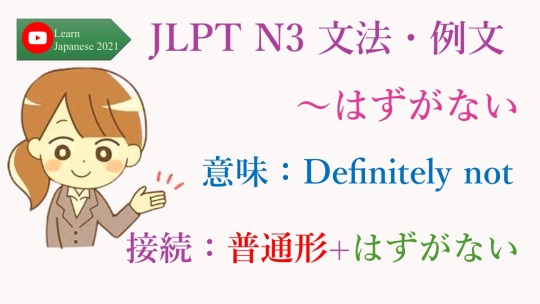
View On WordPress
37 notes
·
View notes
Text



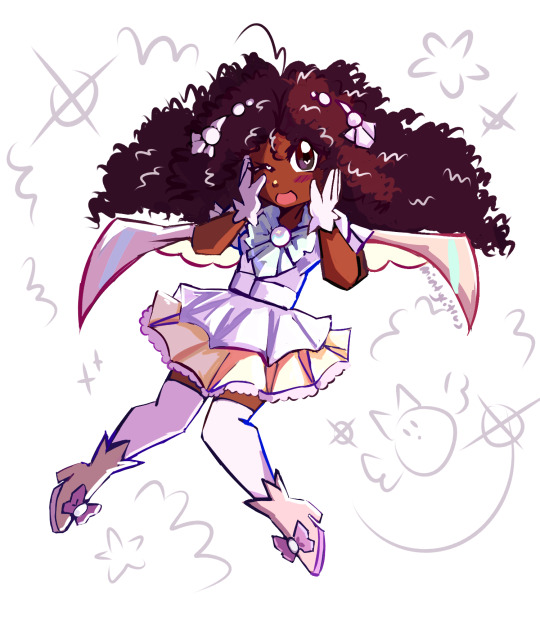
smols
#magical girl oc#mahou shoujo#magical girl#chibi#mahoucore#i could tag it w “magical boy” since number 5 is up there in the post but i wont.#original character#☆ specific tags:#tsts#the skies that shimmer#n1#june harper#n0#carrie cheryl#n3#n5#whose irl names im not going to tag for now since its technically a slight spoiler#ch.1-2(and possibly ch3) coming out in august so stay tuned for that ehehe
128 notes
·
View notes
Text
Sitting with Takofuusen
11/12/2023 - 11/18/2023


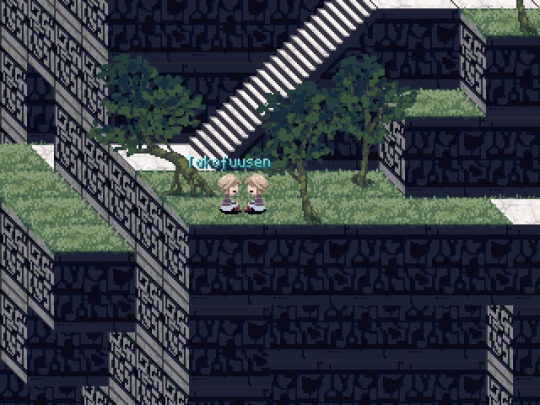


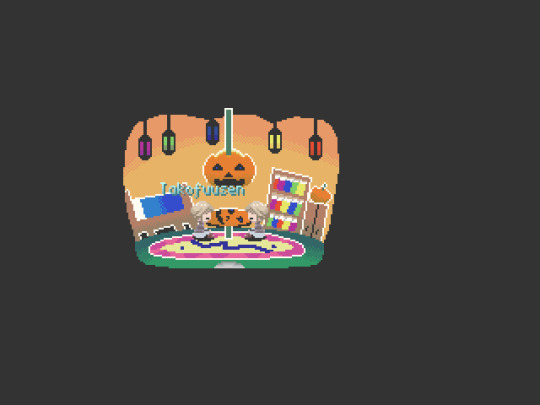

#yno#ynoproject#ynfg#yume 2kki#swt#doctor#aediorugap#nabisae#n3#qxy#grass world#viridescent temple#crystal waters#ily
49 notes
·
View notes
Photo


Pauli putting a boa on Harry at Chicago N3
#tw flashing#harry styles#harry#hslot#hslot chicago#n3#harry gifs#hlcreators#hledits#SOOO pauli does this after harry said that boas are a symbol for coming out#sooooooo yea#take what you will from that#teehehe#hs
359 notes
·
View notes
Text
文法:〜ては(If・Because + Bad Result/Whenever ~/Repetitive Actions)
A(て-form)+は、B。
In spoken Japanese, ては and では become the contractions ちゃ and じゃ respectively.
We’ve seen ては combine with phrases like ならない、だめ、いけない to mean something that you “must not do.” However, ては has several different uses.
If・Because + Bad Result
Aては、B。
(A[普通形]+のでは、B。)*
If/Because A, then B (Bad Result).
This is the base form for the grammars てはいけない and しなくちゃならない. ては is a conditional whose usage is very similar to ~たら, but while ~たら is neutral, ては carries a negative implication. It's used to express a negative result due to some action, or even just one's negative reaction to that action.* While it's common to see it paired with だめ・ならない・いけない like in the above grammars, it is not limited to those endings.
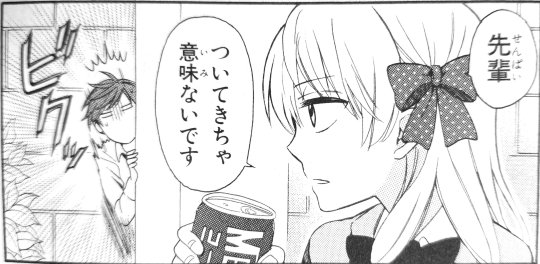
先輩 ついてきちゃ意味ないです[ビクッ]
Senpai, there's no point if you're just going to follow me. [Startled]
[Speaker is on an errand from Senpai to fetch a drink.]
(『月刊少女野崎くん』 Girl’s Monthly Nozaki-kun,vol. 1 by Izumi Tsubaki)
Of course, depending on the translation, these alternate endings can still carry the meaning of "that must (not) be."

未来の僕の奥さんに傷が残っちゃ大変だ
It would be a problem if my future wife were scarred. (= I can't allow my future wife to be scarred.)
(『魔法使いの嫁』 The Ancient Magus' Bride, vol. 1 by Yamazaki Kore)
Whenever ~
While て-form is used to simply connect two clauses to indicate a simple sequence of actions, ては is used to describe an action that keeps happening. In this case, ては is only formed from verbs.*
A(Verb) て、B。
When A, then B.
A(Verb) ては、B。
Whenever A, then B.
These actions are habitual, with B happening every time A occurs. This meaning is not necessarily negative, and the phrase is not repeated.* *
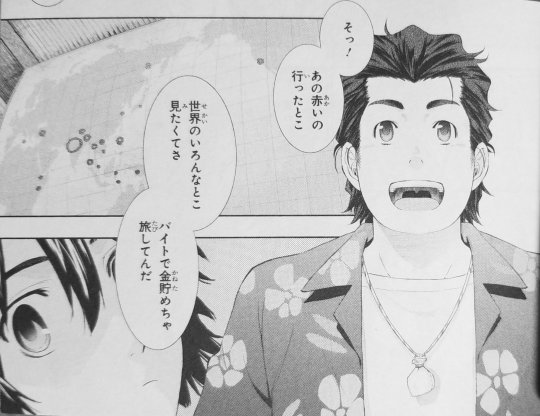
そっ!あの赤いの行ったとこ
世界のいろんなとこ見たくてさ
バイトで金貯めちゃ旅してんだ
Yeah! Those red pins are the places I've been.
See, I really wanna travel all over the world,
And I go on a trip whenever I save up enough money working part-time.
(『あの日見た花の名前を僕達はまだ知らない。』 Anohana: The Flower We Saw That Day, vol. 1 by Okada Mari and Izumi Mitsu)
Repetition
ては can be used to emphasize two actions happening over and over, similar to ~たり~たりする. However, while たり gives several examples (out of many), ては really stresses the repetition.* These two actions can be completely unrelated, even opposite actions. The ては phrase can be repeated twice, or the order of the verbs even inverted to further emphasize the repetition. This form is only formed from verbs.
A(Verb) ては、B。
Do A and B repeatedly, every day, constantly, always.
A(Verb) ては、B、AてはB。
Repeatedly A-ing and B-ing, A-ing and B-ing.
A(Verb) ては、B、BてはA。
Repeatedly A-ing and B-ing, B-ing and A-ing.
When repeated twice, the two actions are opposites (ex: turn on and off, draw and erase, eat and sleep.)*

だから何度も目覚めては 確認するにゃ
So I keep opening my eyes over and over, just to check.
[To keep the cat pun, consider: "meowny times" instead of "over and over".]
(『おじさまと猫』 A Man and His Cat, vol. 1, by Sakurai Umi)
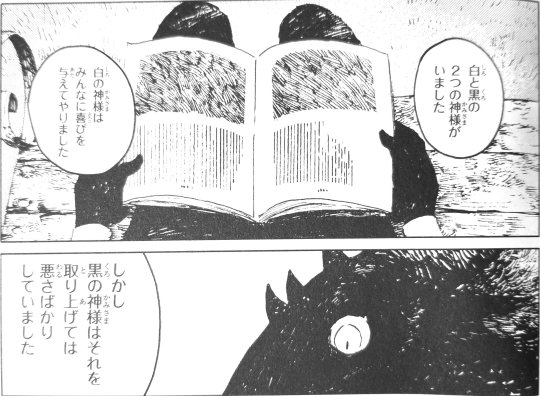
白と黒の2つの神様がいました
白の神様はみんなに喜びを与えてやりました
しかし黒の神様はそれを取り上げては悪さばかりしていました
There were two gods, one white, one black.
The white god bestowed joy upon everyone.
However, the black god constantly took that joy away, and wrought only evil.
[Language purposely elevated to keep the fairy tale/mythic feel.]
(『とつくにの少女』 The Girl from the Other Side: Siúil, a Rún, vol. 1 by Nagabe)
On top of the 3 usages above, Maggie-sensei lists a few more. Be sure to check out her page for more examples from a native speaker!
Advice & Suggestions
This one is another usage that is similar to ~たら, this time giving the advice a more elevated feel than the casual たら, or softens the impact of a straightforward ていただけませんか.
Aてはいかがでしょう。
Aてはいただけませんか。
Aては… [unfinished to allow listener to fill in the blanks]
Attempt with expected failure
ては is used to modify てみる when you're not optimistic about the outcome of an attempt.
Aてはみます。
I will at least give A a try...
J-Rock Examples:
山際も星も/ぼくらに気付いては/お話もした
Both the mountain ridge and the stars / Whenever they noticed us / Told us stories as well
[赤い光線 - 交信]
東京にすがりついては/泣きじゃくって 言えやしなくて
I’m always clinging to Tokyo / and crying and I just can’t say it
[関取花 - 東京]
革靴は知らぬうちに/あのリズムを奏でては列車中に空しく響く
Whenever my leather shoes unconsciously / tap out that rhythm, it echoes through the train in vain
[関取花 - 石段のワルツ]
124 notes
·
View notes
Text
Kanji of the day: 最
最 - Utmost, most, extreme
Kun: もっと.も、つま
On: サイ、シュ
(Pinyin: zuì | zui4 )
Pictophonetic: 取 indicates the sound (qǔ | qu3), and 宀 (roof) indicates the meaning
This kanji originally meant "gather" and was written 㝡, and would've been fairly easy to memorize due to it double-functioning as an ideograph; to put something 取 (take, fetch) under roof 宀. Later additional strokes were added below the 宀 component, possibly to depict things gathered. This was then simplified into 曰, making the kanji 最.
Over time, the meaning shifted into " to accumulate", and from there to "accumulated" -> "many" -> and then to our modern usage "most".

(最 / 㝡 as it was written during the Qin dynasty (221-206 BC), note the 宀 with additional strokes )
Strokes: 12
Radical: 曰 say
20 notes
·
View notes
Text
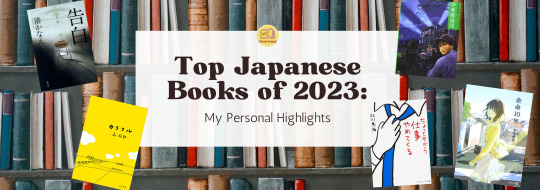
In 2023, I started working full time and thus had less time to read compared to 2022. In addition, I also started preparing for the JLPT N1 and tried to read novels in Japanese that would challenge my reading comprehension accordingly as well.
These are my top 5 Japanese novels of 2023:
5. 余命10年 by 小坂 流加
4. カラフル by 森 絵都
3. ちょっと今から仕事やめてくる by 北川 恵海
2. 少年探偵団 by 江戸川 乱歩
1. 告白 by 湊 かなえ
You can read the full post about my 2023 novels here:
I also joined Tumblr in 2023 and am really happy to have found the Japanese langblr community! Since a lot of what I’m reading comes through recommendations I’m super grateful to have a community again to share resources and reviews with. Thanks for all the great books I was able to read along with you guys!
#my book reviews#reading in japanese#intermediate to advanced Japanese#japanese contemporary fiction#japanese books#Japanese language#Japanese literature#JLPT N1#JLPT N2#JLPT N3#mystery#N1#N2#N3#japanese novel#study japanese#learning japanese
13 notes
·
View notes
Text

youtube
Our man is super productive🥰 with this and working on new Joker Out songs
22 notes
·
View notes
Text




Wembley n3 and n4 wallpapers!!!
#harry styles#harry styles wallpaper#lock screens#wallpapers#i made them#bi flag#love on tour#love on tour wembley#n3#n4
50 notes
·
View notes
Text


"Honestly impressive to get arrested in [Redacted] City"
This meme is so fun I had to do it with the N3 kids. I even got to do an implied crossover with @kate882's oc universe! Not sure how they got arrested on vacation to visit Lyla, but she'll make sure they won't be in custody for long~ ♥
#art#illustration#meme#art meme#mutuals#barbie meme#supernatural meme#oc#N3#N3:Shiawasei#toru#ito#ane#daeho#lyla
16 notes
·
View notes
Text
Espero te acuerdes de nosotros y quizá en otra vida nos volvamos a encontrar.
-Felipe H.
26 notes
·
View notes
Text
JLPT N3 例文で学ぶ漢字「田」、デン、た
JLPT N3 例文で学ぶ漢字「田」、デン、た
音読み:デン 訓読み:た
田舎(いなか) countryside
田(た)んぼ Rice field
油田(ゆでん) oil field
水田(すいでん) paddy field
田植(たう)え rice planting
田畑(たはた) fields (of rice and other crops)
田園(でんえん) fields
片田舎(かたいなか) remote countryside
例文
自然豊(しぜんゆた)かな田舎(いなか)で静(しず)かに暮(く)らしたい。I want to live quietly in the rural area with its rich natural surroundings.
田(た)んぼの青々(あおあお)とした稲(いね)が風(かぜ)にそよいでいる。The green…
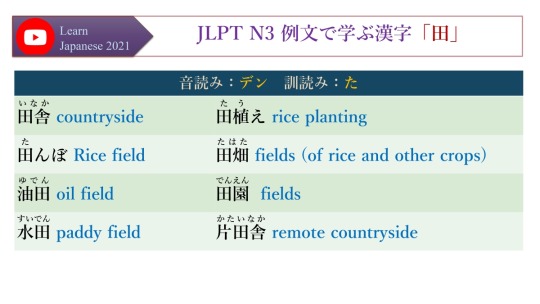
View On WordPress
8 notes
·
View notes
Text

💧
#magical girl oc#mahou shoujo#original character#☆ specific tags:#tsts#the skies that shimmer#n3#im going to be completely honest. i feel i could have done a MUCH better job#but the comic pages arent going to color themselves#and i cant afford to spend another three hours on the rendering so
58 notes
·
View notes
Text

先週、私は日本語のN3を初めて勉強しました、十九週の後で次のJLPTの試験がある。このごろたくさんANKIを使いますけどつまらなくなったから、今小説や漫画や読みたい
Last week I started studying for N3, and after 19 weeks there will be another JLPT exam. Nowadays I'm using a lot of anki but (ngl) it's become boring, that's why I now want to start reading things like manga or short novels.
45 notes
·
View notes